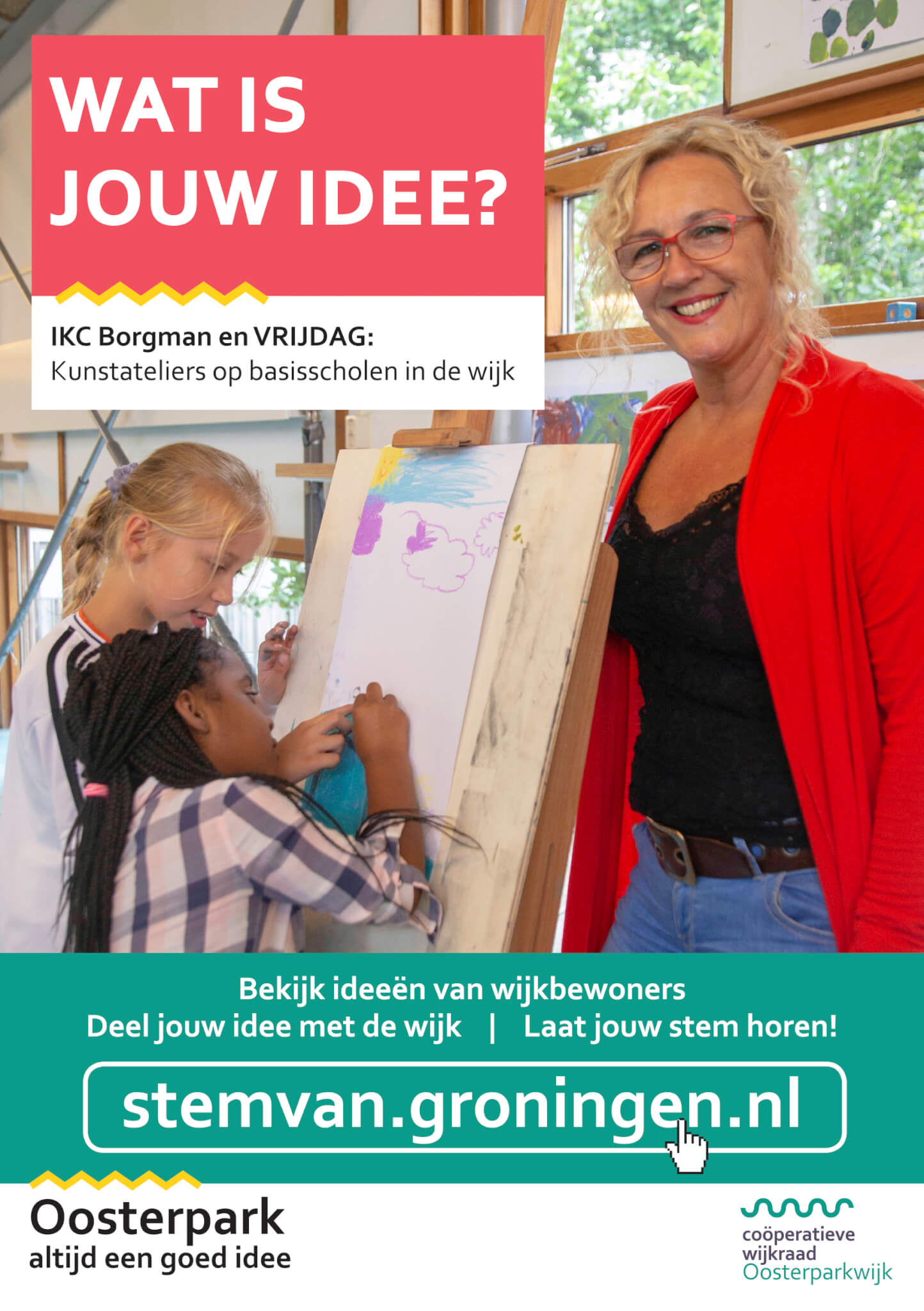featured image: Idea map from Stem van Groningen
This case study was first published in our Digital Democracy guide
In the city of Groningen, digital democracy started with the Department of City Districts. Their approach of ‘area-oriented working’ means that the municipality is looking for ways to give residents more control over their own living environment. Intensive contact with people is essential, as well as connecting different groups. From this approach the municipality saw the need to also maintain contact with residents through digital means. The department was commissioned to find out what tools there were and to make a provisional choice based on the wishes and ambitions.
From this vision, digital democracy was linked to the innovation programme within the municipality of Groningen that focuses on improving digital services. Groningen also participated in the ‘Local Digital Democracy Lab’ that was organized by the Dutch Ministry of the Interior. Within this testing ground, municipalities were able to work together to experiment with online participation and learn from each other. Groningen chose to work with the open source tool Consul because it offers many different functionalities so that the tool can be used for various processes.
The Lab brought Groningen into contact with other municipalities that used the same tool. They decided to follow each other’s initiatives and investigated how they could work together. Four municipalities now work together. The functional managers help each other with questions and project leaders advise each other on different participation processes. The municipalities have also applied for funding to work together on the development and improvement of Consul.
Casus: Stem van Groningen in the Oosterparkwijk
Officially, the process “Oosterpark, always a good idea” on the participation platform Stem van Groningen (Voice of Groningen) is a commission from the Coöperatieve Wijkraad (Cooperative Neighbourhood Council) to the municipality to organize an online participation process. The Cooperative Neighbourhood Council is a democratic experiment by the municipality of Groningen that successfully combines representative democracy with participative democracy and recently won the European Innovation in Politics Award 2019. The council is made up of 11 local residents who were chosen through sortition in collaboration with 6 councillors from the municipal council. Together they make decisions for and with the neighbourhood. To support the neighborhood council, also a panel of 400 residents were selected through sortition. This panel is regularly asked for their opinion online, for example through surveys.
The Cooperative Neighbourhood Council asked the municipality to support them in organizing an online citizen budget. They had a budget to give subsidies to good initiatives for the neighbourhood. But they wanted the conversation about which ideas that money should go to take place between people in the neighbourhood. Starting point was to let the neighbourhood decide for itself what 25,000 Euros should be spent on.
On the platform “Voice of Groningen”, local residents can submit ideas and choose which ideas are implemented by distributing a neighbourhood budget of 25,000 Euros. The proposals are viewed by the members of the Cooperative Neighbourhood Council and residents. In addition, both people submitting ideas and the Cooperative Neighbourhood Council receive support from the area teams and other civil servants. A number of evenings are organized in which people who submitted ideas are invited to develop the proposal further, with each other, with the support of the Cooperative Neighbourhood Council and officials of the municipality. After the voting phase, 11 proposals won the support of residents and these proposals are now being implemented by the municipality in close collaboration with the initiators. To exchange practices with other cities the pilot was part of the European Like! project.




